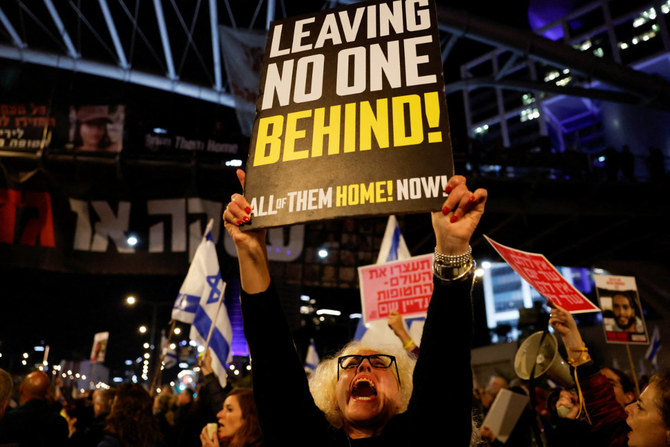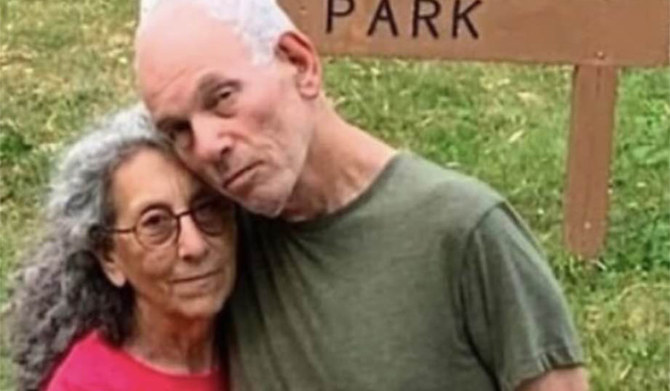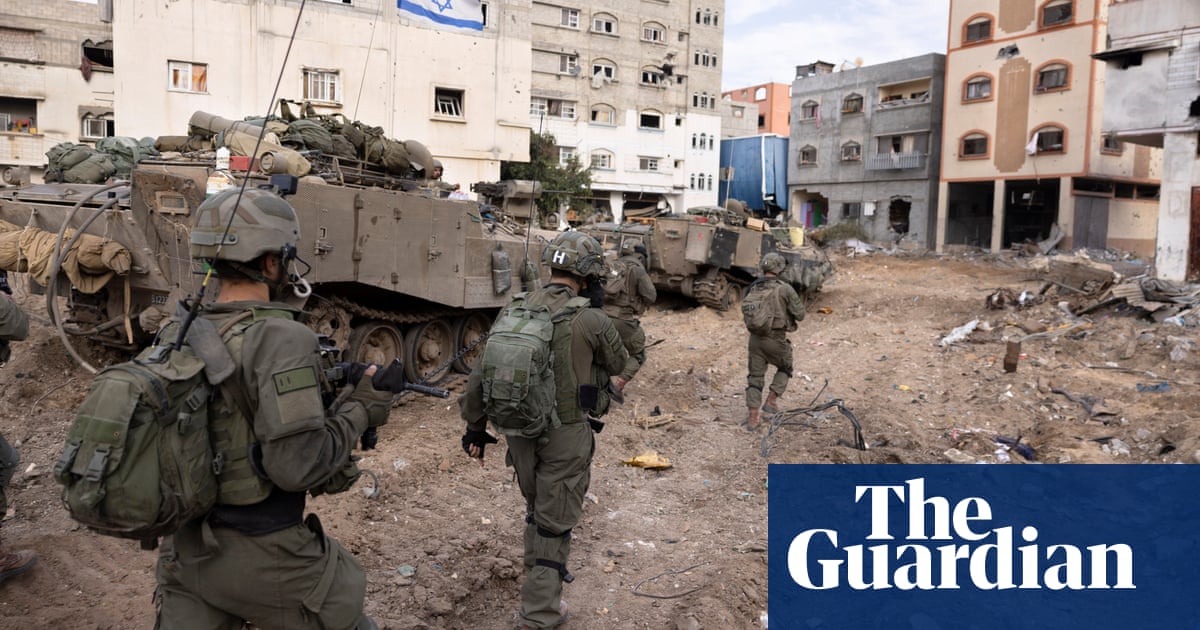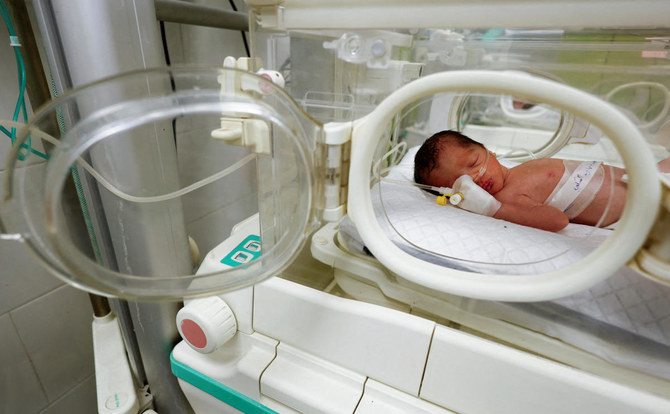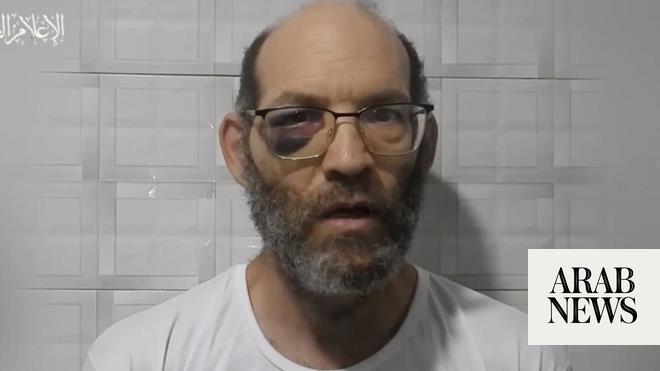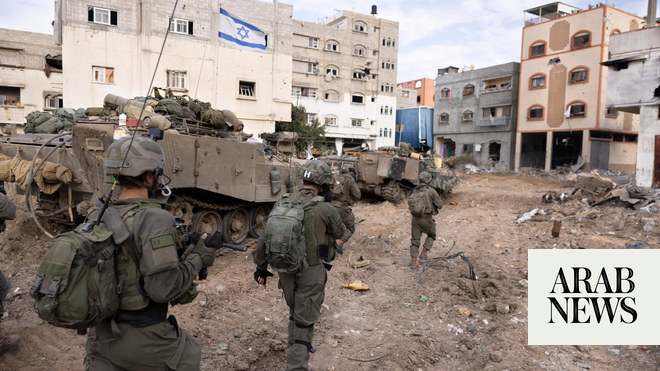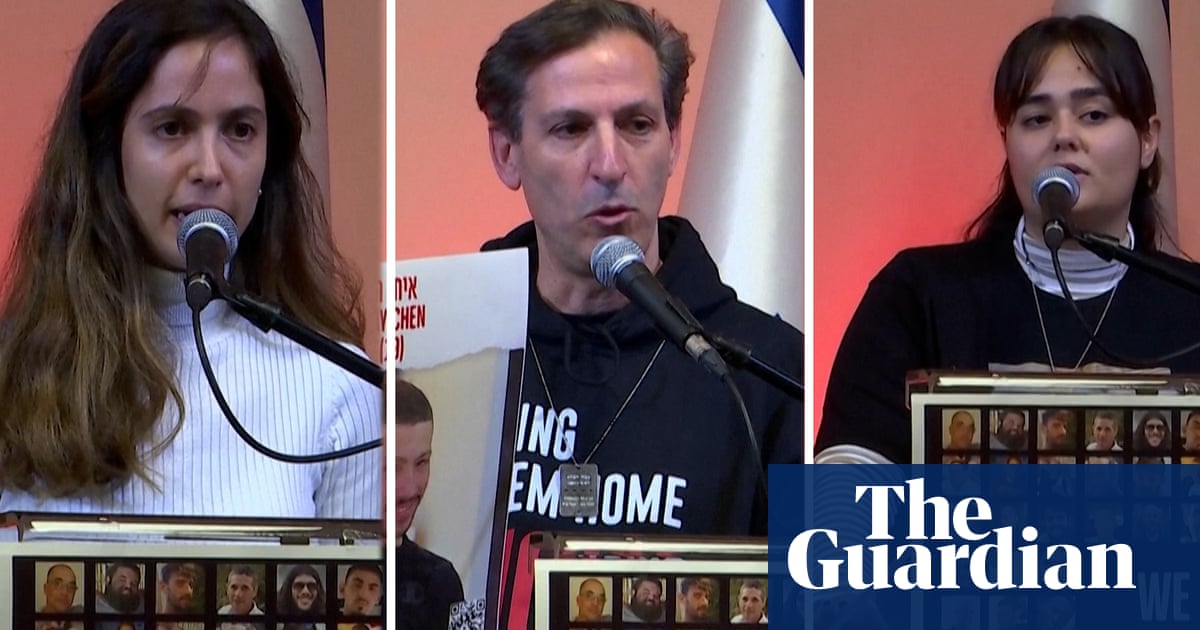
For nearly eight months, she has suffered anguish, uncertainty and “indescribable” pain as the family awaits Hersh’s return.
A one-week truce in November saw 105 hostages freed. Hersh, like most other Israelis of fighting age, was not among them
Jerusalem: Rachel Goldberg-Polin has a piece of tape attached to her shirt, bearing the hand-written number of days her son Hersh has been held hostage in Gaza.
It is “an emblem of my pain,” said Goldberg-Polin, 54, speaking to AFP at her office in Jerusalem, where an Israeli flag waves next a banner featuring her 23-year-old son’s portrait and calling to “Bring Hersh home.”
Holding back tears, the US-born mother decried “an embarrassment to the human race that we haven’t been able to save” the 121 hostages held by militants in the Hamas-ruled Gaza Strip since October 7.
The figure includes several foreigners or dual citizens like the Israeli-American Hersh Goldberg-Polin, and 37 captives the army says are dead.
Ever since the October attack, the soft-spoken mother, a former mental health professional who “used to work out six days a week,” said she hasn’t exercised, listened to music or eaten sugar.
“It’s a different life,” she told AFP.
For nearly eight months, she has suffered anguish, uncertainty and “indescribable” pain as the family awaits Hersh’s return.
A one-week truce in November saw 105 hostages freed. Hersh, like most other Israelis of fighting age, was not among them.
Relatives of hostages have piled pressure on the government of Israeli Prime Minister Benjamin Netanyahu, urging immediate action to secure their release.
But “wanting and doing are two very different things,” Goldberg-Polin said of the stated political will to bring them back.
A dual Israeli-US citizen, she moved to Jerusalem in 2008 and lives there with her husband Jon. They have three children, including Hersh.
Goldberg-Polin said she has turned to her Jewish faith through this period.
“When I pray every day... it’s a form of meditation and it’s a form of therapy.”
She said that when she prays for Hersh, she repeats same mantra: “I love you, stay strong, survive.”
Her younger daughters, 18 and 20, have also been a source of comfort.
“They have to often be maternal to me, which I feel bad about because my job is to be maternal to them,” said the mother.
In late April, Hamas released a video showing her son — a sign he may still be alive and the first time the family saw Hersh since October 6.
It was a Friday night, and after the Goldberg-Polins went to synagogue and had dinner with friends, Hersh left.
Recently back from a long trip across Europe, he decided to go camping, his mother said.
Without her knowing, Hersh went with a friend to a music festival near the Gaza border.
As an observant Jew, Rachel usually avoids using technology on Saturday, the Jewish day of rest.
But in the early morning on October 7, she looked at her phone. A message from her son read “I love you,” followed by another: “I’m sorry.”
The family initially thought Hersh had died, before learning of his abduction from the Nova rave site, where more than 360 people were killed by militants from Gaza.
Hersh’s left forearm was torn off during the attack, while his friend, Aner Shapira, was killed.
Militants were throwing grenades at them, and Shapira “kept picking them up and throwing them out” until one of them killed him, said Goldberg-Polin.
Rachel Goldberg-Polin’s relentless efforts to push for her son’s release has made her a well-known figure in Israel and beyond.
She has met with Pope Francis and last week with US President Joe Biden, who was “very emotional,” noted Goldberg-Polin.
In April, US magazine Time ranked her among the 100 most influential people in 2024.
“It was immediately clear that I do not belong on that list,” she said, but being included in it helped bring attention to “this global humanitarian crisis.”
Hamas’s October 7 attack during which Hersh was abducted resulted in the deaths of 1,189 people, mostly civilians, according to an AFP tally based on official Israeli figures, and triggered the ongoing war.
Israel’s retaliatory campaign in Gaza, which officials have said aims to rescue the hostages and destroy Hamas, has killed at least 36,224 people, also mostly civilians, according to data provided by the territory’s health ministry.
Goldberg-Polin said that “from the very beginning” she had also been “deeply worried” for “the innocent civilians” in Gaza.
“I don’t think it’s a competition of pain,” she said.
Now, people she meets and recognize her “start crying” as they already know her story, Goldberg-Polin said.
“I’m praying for the day when people see me and they smile.”




